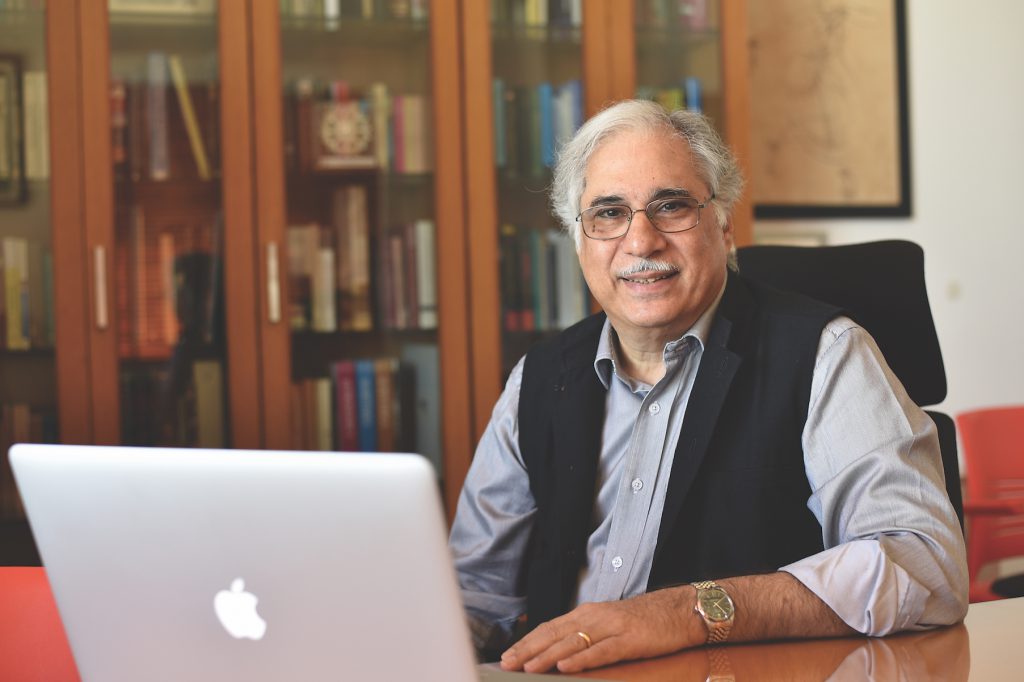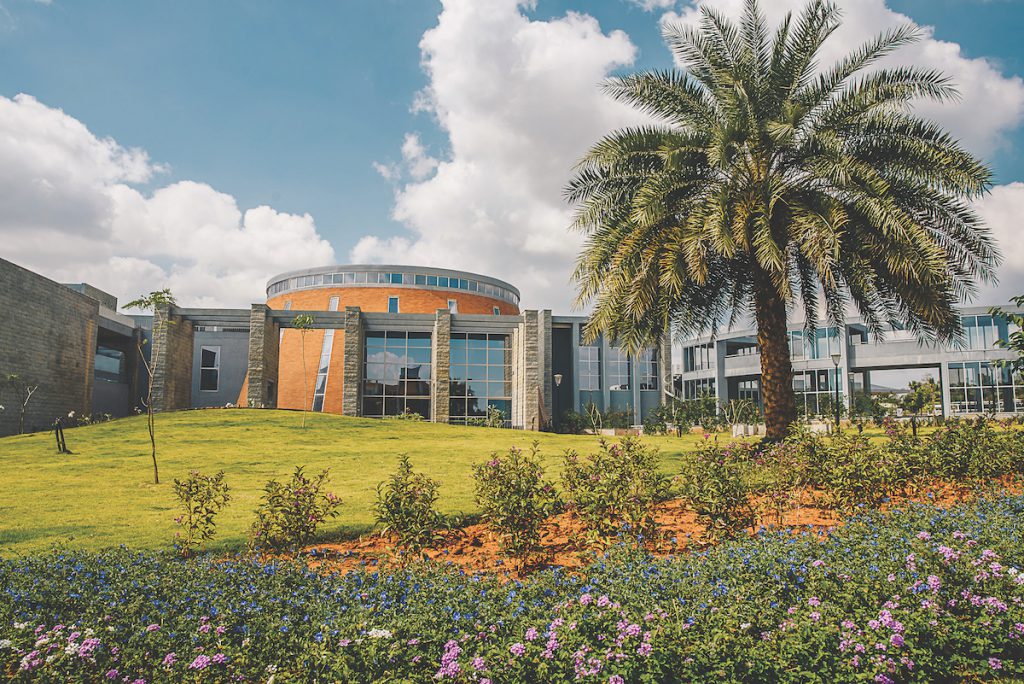Conversation with Spenta R. Wadia
Interview by Lorraine Walsh
Spenta R. Wadia is Founding Director and Infosys Homi Bhabha Chair Professor at the International Center for Theoretical Sciences (ICTS) of the Tata Institute of Fundamental Research in Bangalore, India. His main research interests are in elementary particle physics, string theory and quantum gravity. His other scientific interests are in statistical mechanics and complex systems including cross-disciplinary biology. He is an alumnus of St. Xavier’s College, Mumbai, IIT-Kanpur, the City University of New York, the University of Chicago and the Tata Institute of Fundamental Research (TIFR) in Mumbai.
Below is an excerpt from a spring 2018 interview during Spenta Wadia’s visit to SCGP:

Can you tell me a little about the ICTS? I understand you are the Founding Director.
The International Center for Theoretical Sciences in Bangalore is a center of the Tata Institute of Fundamental Research. The idea to create the ICTS was born in 2001, after the successful completion of the Strings 2001 conference at TIFR Mumbai and a visit to the Infosys Campus in Bangalore in February 2001, that happened at the insistence of Edward Witten who was keen to visit the ‘temples of modern India’. The former boosted our confidence based on our achievement in fundamental physics and the latter provided confidence that institutional infrastructure and management of the highest international quality is possible in India. This combination of the highest quality science within a modern state-of-the art campus, managed along modern management lines, inspired the basic idea of the ICTS. The idea of ICTS finally took shape in 2004 in discussions with David Gross who gave a concrete road map and impetus to the creation of the Center, which was then established with strong support of C. N. R. Rao by the Tata Institute (of the Government of India) in August 2007. The new state of the art ICTS campus in Bangalore was inaugurated on 20 June 2015.
What is the mission?
ICTS has a three-pronged mission. One mission is of course outstanding research that is organized into three main directions: complex systems that include statistical and condensed matter physics, fluid dynamics and turbulence, and physical biology; spacetime physics that includes gravitational wave astronomy, string theory and related areas; and mathematics that includes geometry, PDEs and probability theory.
At ICTS we see science as one story. The partitioning of science is a result of the history of exploration of the complex natural world and perhaps the limitation of the human mind to comprehend and process and make sense out of so much data. It is good to have staircases built between different areas of science. That is why at ICTS we do not have departments, but units that can interact with each other. We have people who are experts in what they do, but their intellectual space is broader than their field. And hence they can come together to solve problems that need diverse expertise. An example is the project to understand the mathematical foundations of the Indian monsoon – a weather system, which is very complicated and little understood, given India’s proximity to the equator and being a peninsula. There is also useful interaction between string theorists and condensed matter physicists and mathematicians. At the moment we have approximately 20 faculty members and the number will go up to 30 to 35 in the next 10 to 15 years. Most of them are young and leaders in their fields.
Then the other mission of the ICTS is its ‘Programs’ that bring together physicists, astronomers, cosmologists, mathematicians, biologists, students and researchers from all over the world, under one roof, for various lengths of time to work together to solve the most challenging questions posed by nature, to discover the underlying structures across the sciences and to strive for the unity of knowledge.
The research and quality of the ICTS faculty forms the bedrock of this mission for various activities like schools, conferences, workshops, and discussion meetings. The architecture and spaces of our new campus also contribute to the atmosphere at ICTS. Some of the best people in the world, across the landscape of science, visit and spend time at the ICTS. The ICTS programs also enable a platform for new, important emerging areas of science like the confluence of neuroscience, computer science and artificial intelligence.
Using the resources of our main two missions we have a vibrant program of science outreach and interface with civic society. What we are doing in science is extremely important to share with civic society: with students so they can get interested in science; with people who are not scientists in their professions to have them participate in this incredible journey of our species in the exploration of the natural world and ourselves. Outreach is also very important since we are looking for support from civic society for our work.
During the past decade ICTS has achieved some measure of success in its three missions! Its programs have had a significant impact on Indian science; it is an international hub of science; its faculty (presently 20) has made widely recognised contributions and its science outreach has become a fixture for science enthusiasts in Bangalore. Besides basic government support, it is significant that ICTS activities are presently supported by grants from the Simons Foundation and the Infosys Foundation.
And what does the future hold? How is the transition now that you have stepped down?
In July 2015 I stepped down as Director as I reached the age of 65 years and I handed over the baton to the very capable hands of Rajesh Gopakumar who now leads the ICTS. As for myself, I am happy about the outcome of the years since ICTS began in 2007. Avinash Dhar who has worked side by side with me in all the various tasks since the creation of this Center, continues to be at ICTS. I I still work there and continue my research with renewed enthusiasm as I have more time now and also support all initiatives that are currently underway in taking ICTS to an even higher level in its next decade.
Good luck on your new venture. On behalf of everyone at the Simons Center, thank you for sharing your time and work with us. We wish you much success as you move forward. •


